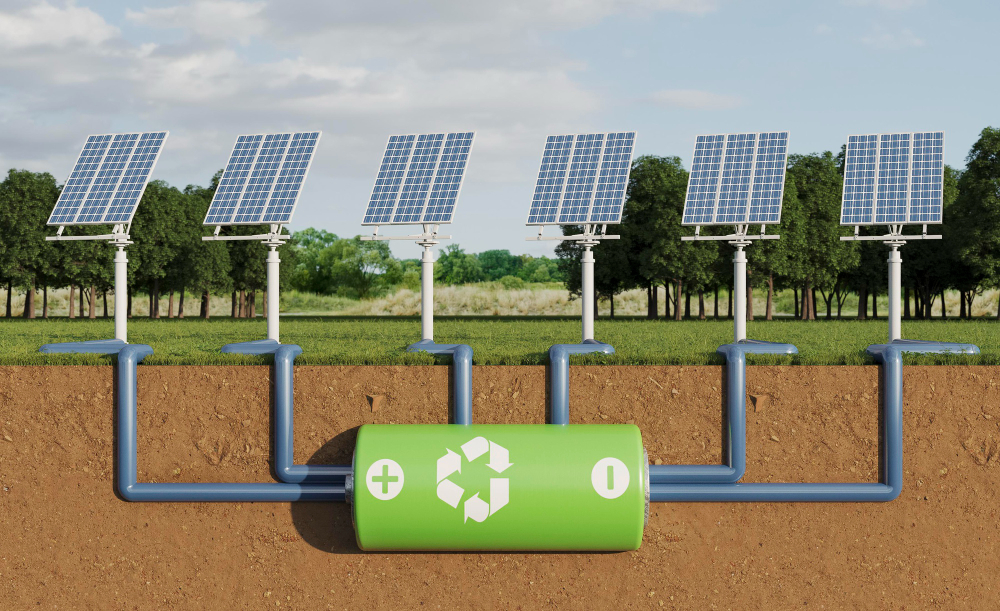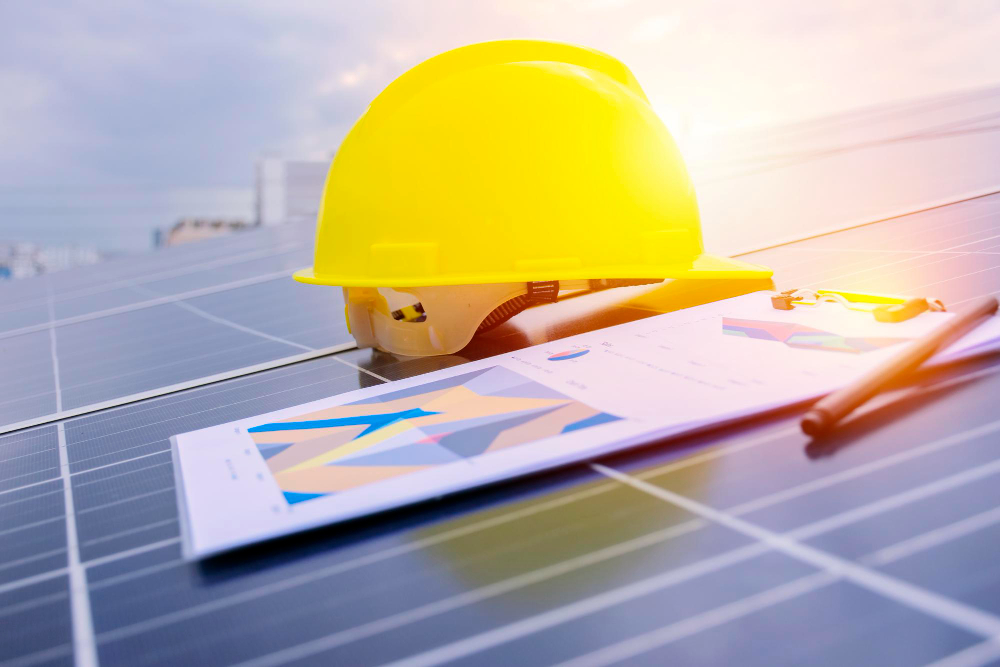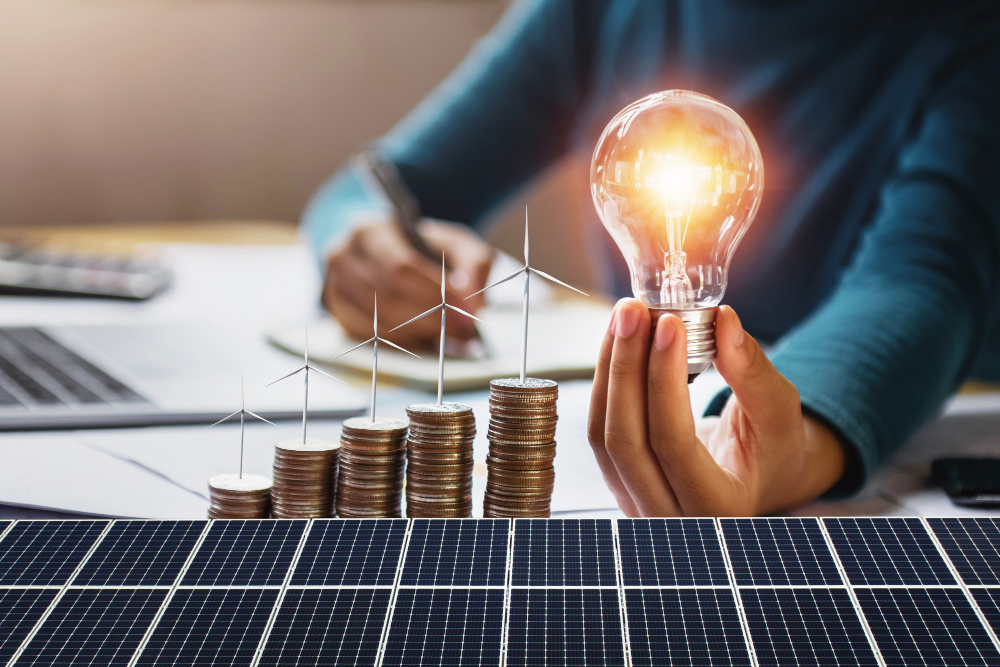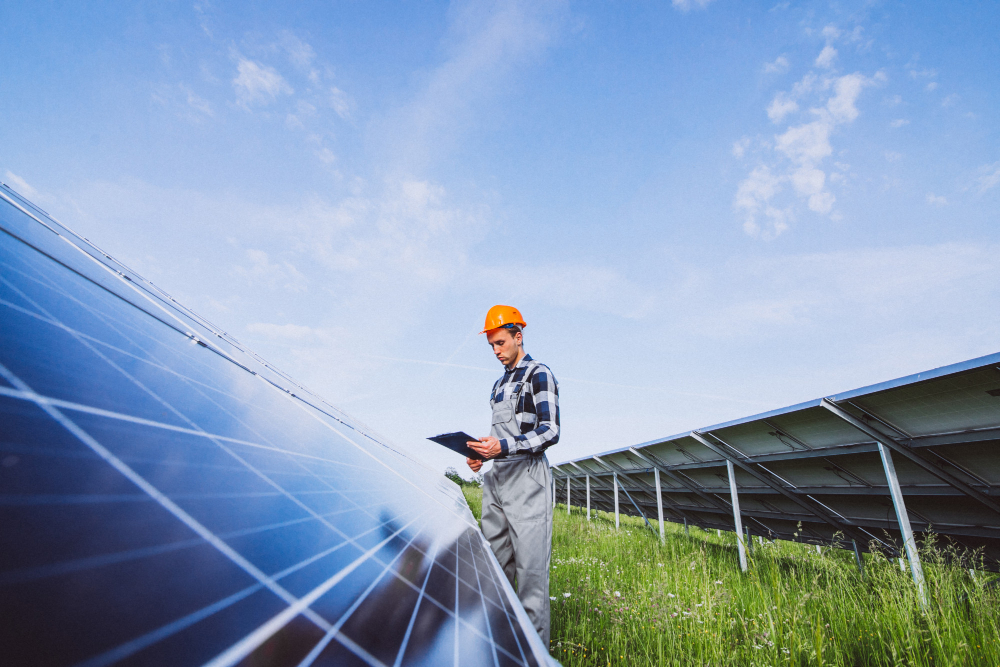Did you know that 55% of the world’s new renewable energy is now solar?
Solar energy is a great way to save money and help the environment, but many people don’t know how to go about installing solar panels.
Even though solar energy is becoming more and more popular, a lot of people are still hesitant to make the switch because they don’t know how it works or they’re worried about the cost.
But don’t worry. Keep reading because we wrote this guide to show you how to sell solar energy in an easy and straightforward way. By following our tips, you’ll be able to convince your friends and family members to make the switch too!
What Is Solar Energy?
Solar energy is one of the most talked-about forms of renewable energy and for a good reason. Solar energy is radiant light and heat from the Sun that is harnessed using a range of ever-evolving technologies, from solar heating and photovoltaics to solar thermal electricity, solar architecture, and artificial photosynthesis.

The potential for solar energy is vast, as it is estimated that the amount of sunlight hitting the Earth every hour could meet the global energy demand for an entire year. In addition, solar energy is a clean source of renewable energy, as it does not produce any harmful emissions when generating electricity.
As more countries look to transition to cleaner sources of energy, solar will likely play an increasingly important role in meeting our global energy needs.
How Does Solar Energy Make You Money?
Solar energy is one of the most environmentally friendly sources of power available. Unlike fossil fuels, solar power does not produce harmful emissions, and it is also renewable. As a result, more and more homeowners are choosing to install solar panels.
Not only is solar energy good for the planet, but it can also save you money. Once you have installed a solar system, the energy it produces is free. You can also sell any surplus power back to the grid.
Moreover, most solar energy systems qualify for tax incentives which can dramatically reduce the overall cost of the system.If you’re ready to take advantage of these tax incentives, you can efile your tax return for free.
In this way, solar energy provides an excellent return on investment, which is why it is such an attractive option for many homeowners.
How Much Money Can You Make Selling Solar Energy?
The size of your solar energy system is just one factor that determines how much money you can make selling solar energy. The amount of sunlight your system receives also plays a role. In general, systems located in sunny states will produce more electricity and, as a result, earn more money for their owners.
Additionally, the rules governing solar energy vary from state to state. Some states offer credits or other incentives that increase the earnings of solar energy systems. As a result, it’s important to research the policies in your state before installing a system.

With all these factors taken into account, the average 6 kW system can offset about $840 of electricity per year. In states with generous solar policies, like California and Colorado, you could make over $3,000 per year!
What Are the Steps to Selling Solar Energy?
The steps to selling solar energy are:
- Determine if your system qualifies
- Find out the rules and regulations in your area
- Contact your utility company to sign up for their net metering program
- Generate power and send it back to the grid
- Get paid for the power you produce
Now, let’s look at these steps in more detail.
How Do I Determine if My System Qualifies?
To qualify for most programs, your system must be connected to the grid and meet certain safety and performance standards. You will also need a recent bill from your utility company so that they can determine the size of your system.
To find out the specific requirements in your area, contact your utility company or check out our state-by-state solar policies guide.
How Do I Find Out the Rules and Regulations?

When it comes to selling solar energy, the rules and regulations can vary considerably from state to state and utility to utility. The best way to find out what applies in your specific case is to contact your utility company directly. However, you can also check out our state-by-state solar policies guide for a broad overview of the situation.
In general, though, you’ll need to make sure that you’re following all the applicable regulations in your area. Failure to do so could result in hefty fines or even the loss of your solar panel installation entirely. With that in mind, it’s always best to err on the side of caution and consult with an expert before proceeding.
How Do I Sign Up for Net Metering?
Net metering is a program that allows you to sell the excess electricity your system produces back to the grid. To sign up, you will need to fill out an application with your utility company.
Once you are approved, they will install a special meter that tracks the power your system produces and sends it back to the grid.
How Does Generating Power Work?
Solar panels produce electricity when they are exposed to sunlight. The electricity is then sent through wires to an inverter, which converts it from direct current (DC) to alternating current (AC).
From there, it flows into your home’s electrical panel and is used to power your home. Any excess power is sent back to the grid.
How Do I Get Paid for the Power I Produce?
You will get paid for the power you produce at the same rate that you pay for electricity from the grid. In some states, you may also receive additional “solar renewable energy credits” (SRECs) for the power you generate.
These credits can be sold or traded to utilities or other entities that are required to purchase them in order to meet their renewable energy goals.
Factors to Consider Before Selling Solar Energy
From a technical perspective, these are a few key factors to keep in mind before selling solar energy:
The Type of Solar System
First, you need to understand the different types of solar systems and how they work. This will help you determine which type of system is best suited for your customer’s needs.
If you haven’t got solar yet, you can get solar with Blue Raven.
The Size of the Solar System
The size of the solar system will affect the price, so you need to make sure you are aware of this before making a sale. You can figure out the size of the system by looking at the customer’s energy usage and solar resources.
The Type of Roof

The type of roof is also an important factor to consider when selling solar energy. You need to make sure the roof can support the weight of the solar panels and that there is enough space for them.
If you are unsure about this, you can always consult with a professional before making a sale.
The Orientation of the Roof
The orientation of the roof is another important factor to consider when selling solar energy. The panels need to be facing the right direction in order to maximize the amount of sunlight they receive.
This can vary depending on the location, so you will need to take this into account when making a sale.
The Shading of the Roof
Shading is also an important factor to consider when selling solar energy. If there are trees or other objects blocking the Sun from hitting the panels, it will reduce their efficiency. You need to make sure you are aware of this before making a sale.
The Climate
The climate is also a factor to consider when selling solar energy. Solar panels work best in sunny climates, so if you live in an area with high levels of rainfall or snow, you will need to take this into account.
The Location of the Solar System
The location of the solar system is important because it will impact how much sun exposure it gets. This, in turn, affects the performance of the system.
The Warranty
Be sure to find out what kind of warranty is offered on the solar system. This will protect your investment in case something goes wrong with the system.
The Return on Investment

Finally, you need to be aware of the potential return on investment for your customer. Solar energy systems can take a while to pay off, so you need to make sure your customer is prepared for this.
Keep these factors in mind when selling solar energy and you will be sure to close the deal. From a financial perspective, you will need to consider the following:
The Upfront Cost of the System
You’ll need to factor in the upfront cost of the system when you’re selling solar energy. This includes the cost of the panels, inverters, and other equipment. You will also need to factor in the cost of installation.
The Ongoing Costs of Maintenance and Repair
You’ll also need to factor in the ongoing costs of maintenance and repair when you’re selling solar energy. These costs can add up over time, so you need to make sure your customer is aware of them.
The Potential for Government Incentives
There are a number of government incentives available for solar energy systems. These can help offset the upfront cost of the system, so be sure to find out if your customer is eligible for any of them.
The Payback Period
The payback period is the amount of time it will take for the customer to recoup their investment in the system. This can vary depending on a number of factors, so you need to make sure your customer is aware of it.
The Return on Investment
The return on investment (ROI) is the percentage of the cost of the system that the customer can expect to recoup over the lifetime of the system. This can vary depending on a number of factors, so you need to make sure your customer is aware of it.
Keep these financial factors in mind when selling solar energy and you will be sure to close the deal.
Anti-Solar Utility Companies
In some cases, the utility company may be against solar power. This is because they stand to lose money if people start using solar energy. They may try to convince your customer that solar energy is not a good investment.
You need to be aware of this and be prepared to counter their arguments. Some utility companies will offer incentives for customers to go solar. These can offset the cost of the system and make it more affordable. Be sure to find out if your customer’s utility company offers any of these incentives.
You need to be aware of the potential for resistance from the utility company when selling solar energy. Be prepared to counter their arguments and show your customer how going solar can be a good investment.
These are some of the things you need to keep in mind when selling solar energy. Use this information to your advantage, and you will be sure to close the deal.
How to Sell Solar Energy
The solar energy industry is growing rapidly, and there’s never been a better time to get into it. By following the tips we’ve outlined in this article, you can learn how to sell solar energy like a pro.
Be sure to check out our blog for more articles like this one, and good luck!
